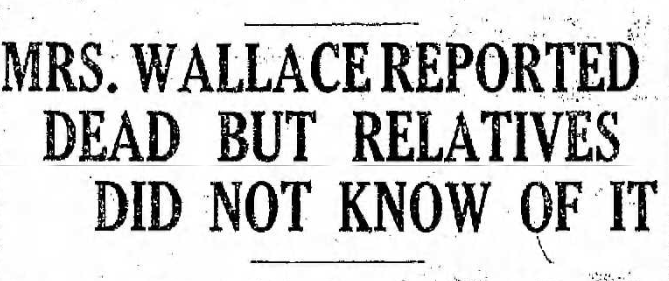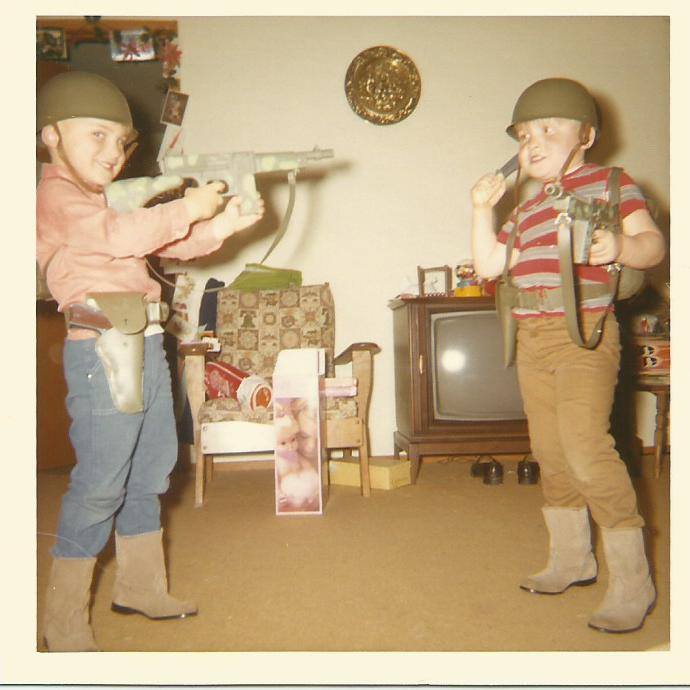Ardent Love Letters of Wealthy Merchant and Fair Young Clerk Result in Plea of Guilt in White Slave Action
WRONGED WIFE AND PARENTS OF YOUNG GIRL HELP BRING HUSBAND TO JUSTICE
Long Secret Courtship and Journey of Youth and Old Age to Pennsylvania and New York City Revealed by Billets-Doux to Federal Judge.
Letters as ardent as those of Petrarch to Laura, of Dante to Beatrice, of Swift to Stella, written by 53-year-old Frederick A. Cooper, wealthy and respected business man of Edmeston, Otsego county, to his girl clerk, Melda Oliver, 33 years his junior, formed the meshes of the net which drew Cooper into the Federal court in session at Binghamton last week to plead guilty to a violation of the Mann act and to pay a $3,000 fine.
The infatuation of Cooper, himself a grandfather, for the girl who might easily have been his daughter, and his willingness to count the world well lost for love, forms the foundation for one of the strangest stories of real life ever told.
Melda Oliver lived at New Berlin, a few miles from Edmeston, and had been employed as a clerk in Cooper’s store. The merchant himself was a church member, was connected with numerous fraternal organizations and stood high in the community. His home was one of the finest in the village, he owned an expensive touring car and his wife and family had everything that heart could wish.
Romance Long Unsuspected.
It was months after his love for Melda Oliver had developed to the point where he had told her of its existence that the tongue of gossip began to wag. The girl’s father was one of the leading citizens of his community. She herself was pretty, popular and with any number of admirers of her own age. The idea that she could have found anything attractive in the gray haired business man never entered the mind of anyone who knew her until the tragedy had been written.
When Robert Oliver, Melda’s father, learned that people were talking about his daughter and Frederick Cooper – that the two had been seen automobiling in the evening and dining together at Edmeston and Sidney and Binghamton, he went at once to the store where the girl was employed and bade her come home with him. He told her that he did not believe that there was anything wrong in her attitude toward Cooper but that things did not “look well” and he wanted to avoid even the appearance of evil.
Returns Home Reluctantly.
The girl obeyed her father, but reluctantly. This was just before the holiday season of 1917. She returned to New Berlin and her parents, believing that her interest in Cooper was merely a passing fancy, placed no particular restrictions upon her. They had no idea that she was receiving letters from him couched in endearing terms and was secretly mailing letters of the same kind.
Then, however, Cooper started writing letters to Mr. Oliver, telling him of his love for his daughter, the honor and respect in which he held her and the plans which he had made for persuading his wife to divorce him so that he might wed “the star and inspiration of his life.”
Mrs. Eve Cooper, wife of the merchant, wrote to Mrs. Oliver, mother of the young girl on who her husband’s fancy had fallen, begging her to take some steps toward protecting her daughter. Mrs. Oliver and her husband became vigilant. They forbade Melda to see Cooper or to communicate with him in any way. This added fuel to the flame. Early in January the young woman left her home and accompanied Cooper to Binghamton and then on a trip to New York. The merchant purchased a stock of goods, leased a vacant store in Susquehanna, Pa., and installed Melda as manager. He himself spent his time between Edmeston and Susquehanna.
Girl’s Father Forced to Act.
Finally Robert Oliver grew desperate. He had fought against making the skeleton in his family closet public, but he felt that something must be done. Mrs. Cooper would not fall in with her husband’s plans for a divorce. Her heart clung to the lover of her youth, the husband of her maturer years and the father of her children. Even though she knew that he had ceased to love her, she would not give him up to any other woman and so any hope that the Olivers might have had of arranging matters came to an end.
Oliver talked with an attorney who recommended that information should be given to the federal authorities, with a view of having an indictment presented to the United States grand jury against Cooper for a violation of the Mann act which prohibits taking a woman from one state into another for evil purposes.
Evidence was presented to the federal grand jury in session in Syracuse last April and a true bill was found. Cooper was brought to Syracuse to plead to the charge, accompanied by his faithful wife who was ready to beg the court to have mercy on her husband.
The merchant was held in $3,000 bail, for which he deposited Liberty bonds, War Savings stamps and a number of gilt-edged securities as a surety for his appearance for trial at the June term of court at Binghamton.
Changes Plea to Guilty.
When he was arraigned there he changed his plea from “not guilty” to guilty. His wife sat beside him in the court room and when Judge Ray asked her to come forward, she arose and stood at the side of the man who had forsaken her, her frame shaken by bitter sobs.
“Madam,” said the judge, “I ought to send this man to prison for a long term. He has been guilty of the most contemptible and criminal acts, not only with reference to this young girl whose life he has blighted, but toward yourself.”
“Spare him, judge, I beg of you,” pleaded the wifed. “He has repented.
(Continued on Page 21, Column 1)
COURT THRILLED BY NEW ROMEO AND JULIET
ROMANCE OF MERCHANT, 53 AND FAIR YOUNG CLERK, 20, DETAILED IN LOVE LETTERS
Long Unsuspected Affair Ends When Former Is Fined $3,000 by Judge in Federal Court at Binghamton.
(Continued from Page 15)
His heart has turned back to me and his children.”
“I should advise you,” said the court, “to get a divorce from him so that he may marry Miss Oliver. Will you marry her if your wife divorces you?” he asked the prisoner.
“Gladly. I ask for nothing better”, replied the latter.
“How would you provide for your wife if she were to divorce you?” questioned Judge Ray.
“I would make over to her three-fourths of everything that I have in the world and would go out and try to make a fresh start, ” said the man.
“But I can’t let him go, judge. I can’t let her have him. Don’t ask me to divorce him. Don’t send him to jail. Let him go home with me and he will live this down,” sobbed the wife, clinging to her husband’s arm.
One Count Left Standing.
“I’ll give him back to you, although I am afraid that you are getting a bad bargain,” replied the 73-year-old judge. “He must pay a fine of $3,000 and there is one count of this indictment still hanging over him on which he may be arrested and sent to prison at any time if he does not keep away from this girl. If he is reported as ever seeking her society or writing to her again, nothing can save him from prison.”
So Mrs. Cooper took her husband home. And Melda Oliver is living a few miles away with her parents.
The letters – the “human documents” are strange studies – studies of the man, the woman and the girl that formed the eternal triangle. They are “exhibits in the case” placed in the charge of the United States attorney in this city.
Binghamton, Dec 14, 1917
Sweetheart:
Am writing two letters, so that you can get this one under cover. Received your dear letter yesterday, and you bet I was glad to hear from you again. I have at your request given up coming after you until you decided your own plans first, but one thing is sure, I can’t stay down here much longer alone, doing nothing but kill time and worry.
If you ever come this way, stop at the Arlington and stay until called for. I shall never make any further plans until we can plan them together, not even a divorce, so you can see that I am somewhat blue. Have been all day at the dentist’s, and will put in tomorrow as well. Am having several teeth gold-crowned and getting fixed up right for you. Went to the movies from 7 to 9, and had a good laugh, as well as shed a couple of tears.
In case you come here and I am away, will leave word with clerk where I am. You can telegraph me at E. in case I am there, saying, “Have a stock for sale.” and sign “Smith” Will hustle to beat the band to get it.
Saved From Madhouse.
Binghamton, Jan. 6, 1918.
Dearest Melda:
You have saved me from the madhouse by your dear letter just received. Dear, it was the only word from you in ages, and to one who had the blue devils since last November it was a ray of sunshine after a storm. Honestly, as I came through South New Berlin today and looked up over the hill towards you the tears came to my eyes unbidden.
Mrs. C. says she is going to Utica to take a course in the spring, and expect I will have to dispose of the store at E. then, as she will take a position offered her. Everything is working out just as I planned for you, dearest. In the good old summertime – so long ago it seems as I look backward.
I did not realize how much I really loved you until we were separated so suddenly one day. Perhaps it was all for the best, although it has given me some more gray hairs. Nothing in my life ever hurt me quite so bad as this, but I know it is coming out right. For the last few days I have been feeling better both physically and mentally and now am optimist again, as usual, looking to happier days in the future.
Am sorry, dear, to hear you have been sick. Am only wishing I could have been able to comfort and prescribe for you as I used to do in the long ago times. You must have had some miserable times yourself since last I saw your dear face, but thank God, it can’t last always, dear, so be cheerful and hope for happier days in six months or more.
There was a big attendance at the masquerade at E. last Tuesday Night. Everybody went but yours truly, and he had a good notion to but decided to wait and take your some time.
Mrs Burke was in Saturday. I asked her if she and the girls missed Molly girl very much, and she said it seemed as though the old clock had stopped with you gone.
Au revoir, SWEETHEART.
Hopes for Happiness Soon
Dearest Molly
I am still planning to go to S. when you come and go into business there with you as my inspiration and help meet. Happiness has seemed just ahead of us for some time. God knows I hope it will come near me very soon.
The way I feel towards your people on account of the way they have used you wouldn’t do for me to say on paper but remember if you want me all hell won’t stop me next time I come up there to see you. I have driven up from Sidney three times with the car. Are you getting all my letters I wonder I have written you quite a number. Some pretty plain talk in some of them of course but Molly dear with all the talk and scandal no one has any evidence of any wrongdoing at all. Not the first darn thing – that is some record considering the case all around from start to finish from the inside and the outside, too. Had I loved you less fondly we couldn’t say this truthfully. I want you to know dearest, wherever I am I am true to you in all things ready to take up the thread of life again just where we dropped it so suddenly. It seems like ages since I kissed your dear lips goodby at old N B that evening and again at E. next day. Love to you.
Binghamton Nov 3 1917.
Dearest Melda
I’m back here again. Could not remain any longer at the old store at E. I tried to help them get ready for Christmas but every minute there is too suggestive of the happy days we were together. I have no plans for the future any different from those you already know. Your father’s idea is for me to stay down there until free but I cannot do this alone. If you are to the store with me all will be well. We have been together too long in business and happiness for me to now cut loose and run a store alone. We can do business with B – as he is ready to accept any reasonable offer but to be candid I haven’t the heart to go ahead with things any different than we planned.
I am so badly broken up over no word from you that I am becoming desperate – if I can come there and see you call me on the phone here. If not at least write here soon. If you feel different about our plans or about me in any way tell me candidly as it is the suspense and uncertainty that is hardest to bear.
Just now when all is upset I shall make no further plans until some word comes from you . If you could come down and bring your mother and let her look over this proposition perhaps your people would feel different about it – that is providing I cannot come up there openly and honestly in a square way.
Unless I get some word before I shall come to your home on Tuesday anyway no matter what reception I get. Yours for Always.
Tries to Get Marriage Consent
Dearest Melda Sweetheart – Am hoping I can see you very soon. Am trying to get your father to consent. Will be there soon unless you telephone me not to come. This last week has been the longest hardest period in my life. If I can see your mother I think perhaps our plans will go through as I will have her go down to Susquehanna and see you settled there unless you are ready to call it all off. Tell your mother I have some things to say to her before I go away. Have had a pretty plain talk with your father and hope it will be productive of good results.
Keep up a brave heart and all will come out right pretty soon.
A thousand kisses to you dear and am coming down soo so get your mother in the mood to meet me and I will tell her some real pleasant honest manly intentions.
Yours when you are ready
COOPER
Dearest Melda Sweetheart – We seem to be up against a pretty hard proposition at present and I am grieving pretty bad over it. God knows I have written enough but am not sure you are getting them. This Sunday has been the worst day that I every have lived yet. The blue devils had me all day and now at 8 p m I am down at the sore to tell you my love is as true as ever and as lasting as life itself.
Dearest don’t ever doubt this no matter what comes I shall be loyal to you.
I fear that business will wind up in the spring. Either I’ll sell it out or give it to Mrs C. as well as the home on the Hudson and while you and I may never take any more joy rides in the car we will have a one seater runabout just the same.
Love and caresses
To My Best Girl – I want to see more of you than I do. I have something to tell you before I go home. Have got to see you before I go. Come right out – don’t pay any attention to anybody. If you cannot come tonight come tomorrow night.
Cares Deeply For Him
In December 1917 Cooper wrote to the father of the Oliver girl in which he assured Mr. Oliver of the deep respect in which he held the girl. Part of this letter and others follow.
I care more for her than anything else on earth and I know that she loves me as well and I think she will tell you that I meant to have a divorce and marry her honorably. As long ago as last July plans were made to do this. My own family knows everything and there is nothing to conceal from any one.
I fought against my feelings for two years before I told Melda. I do not think you desire to ruin her life as I know she cares deeply for me. Will you meet me as man to man and talk this over on the square? And what ever decision is arrived at I will abide by. I will say nothing to hurt your feelings but there are some things I have to talk over with you and which I believe you ought to know for the benefit of all concerned. We must also settle things for the future as we can not let uncertainty rule any longer. I’m asking you to make an appointment by phone. I am actuated entirely by honorable motives as I care too deeply for your daughter to cause any of you further trouble.
Susquehanna Jan 29 1918
Friend Oliver – I am writing to let you know that all appearances to the contrary things are on the square concerning Melda and myself. As I told you one day you need have no apprehension about us here. As soon as our plans can mature all will be right and honorable in every way.
Melda is well and happy as manager of the new department store and the time will not be long now before I can square myself with you and the rest of the world. In the meantime I shall protect and care for Melda and look after her interests in every way as one who cares more for her than for all the rest of the world.
Cannot some of you come? It would be better all around and am sure you would feel better about matters. We would certainly make it pleasant for you. Melda feels that she has so incurred your displeasure that you can never forgive her again. I do not believe this to be so and I ask either you or Mrs. Oliver to come down here and I will tell you frankly all our plans and actions since last we met.
Love and Kisses Due
The following letters were written by Melba Oliver to Mr. Cooper and to her mother the latter while in New York city
South New Berlin Jan 1 1918
My Dearest – Believe me you’ve got some loving kissing due you. You cannot know how glad I was to receive your four letters all in a bunch Monday. It certainly does me worlds of good to hear from you and I realize dear that I have been very very negligent about writing. I do not blame you for getting so anxious but no one knows that I answer your letters as I take mine to the village and mail them at the office.
In regard to the divorce case, I am ready and willing to do just as you want to for if there is anything I can do to make you happy that is my one aim in life and I intend that it shall continue to be. Of course I realize that it will be rather unpleasant but if she really wants one we can soon live down and forget the bad taste of the short time.
Listen dear if you want me to wait a while longer about going away and want to see me you know very well that it shall be done. Of course my people will not consent to my seeing you as I really think they believe the affair about over. But I can and will come to the village and see you most any morning you want to come for I can come down on the train and walk back. I am getting so I really enjoy exercising.
There is to be a dance at Amberville Friday night January 11th. If you are ready to make a flight I will go to the dance and you can send someone from the village up on the side and I’ll go with him. Wish you could be down to the village to go the rest of the way with me. Now listen these are just a few plans I’ve doped out but cannot decide on anything definite until I know how long you are to be up there. Please tell me which you would rather I’d do. It will be very easy for me either way now. Of course on either case I would have to go just as I was but I think they would send me my things later., I always carry my purse and those bonds in my muff and then I’m sure where they are.
You probably know by this time I resigned from the Eastern Star when I first came home. I was so sore at those old hens that I sent in my resignation. I still wear my pin although I have no right to but it is one you gave me dearest and it certainly makes you nearer to wear it and no one here knows the difference.
I certainly wish I might see you tonight dear one, but perhaps you will be all the happier when we get together at least. I am willing to take a chance. Don’t get discouraged. Good night dearest and plenty of kisses.
YOUR OWN MOLLY
Dear Mother – Just a line this morning to acquaint you with my whereabouts. No doubt you will be surprised to hear from me in the city. Instead of going to B. that day I took the milk train to Sidney have seen considerable of the country and am having a fine time.
Am very sorry to cause you so much worry disgrace etc but I could not be happy unless I was with Cooper. We have loved each other secretly for nearly a year and find it the only way to be happy was to be together.
We have found a stock in Susquehanna Pa and unless we get the Richfield one will probably locate there. Now when we get somewhere nearer home we will send you an address and if you want me to come home for a few days with the understanding that I am to go back I will. Don’t worry about me for it will only make you sick.
As we are ready to go and buy Christmas goods I must close. Will try and write you a few more lines tomorrow letting you know where I am and what I am doing. Love to all. MELDA
P S – Wish you could see the city. It certainly is some sight.
Mrs Cooper Heart Broken
The following letter was written by Mrs Cooper to Mrs Oliver.
Edmeston N Y
Dear Mrs Oliver
Yours at hand and feel thankful you are taking steps to stop this terrible affair and I know this to be far more serious than you know. As for me my heart is broken and my home life ruined. But for my children I should wash my hands of the whole affair. It seems strange a girl should be carried away by a man 53 years old and what a future for her. He will soon tire of her – then what.
Now Mrs Oliver I have proof they are planning to go away together and she is fooling you. This I know he is looking for a stock of goods and you can easily know what then will happen. I think he intends to be in New Berlin Monday noon on his way home. He left here Friday morning.
Sometimes this burden is more than I can bear but I have always tried to do my duty and am trying to do so now and have tried all through this trouble to be a Christian. You do not know half I have to put up with. My heart aches for you both and I do pray something will happen to prevent her utter ruin as it surely will happen if she goes away with him. I’m sure he is not fair with either of us. Would like to see you and talk with you but this must be handled with the utmost care. Please burn this as soon as you get it for I shall only have to bear more if this is found out and Oh my God I cannot bear much more. If in anyway I can help you do not hesitate to let me know. EVE COOPER
The following are extracts from the diary of Melba Oliver during her trip to Susquehanna and New York city with Mr Cooper
After loving the boss since Feb 18 1917 I decided to make a getaway with him take a trip to New York and then finally settle down in some quiet place and begin business again. Accordingly on Nov 21st I went to Sidney and waited for the Binghamton train. Tired out I finally reached the city and imagine my joy in finding Cooper at the depot to meet me. We went to the Arlington and although neither of us was very hungry made a pretense at eating. The dinner was fine and negro service enjoyed very much.
We arrived at Susquehanna about 11 o’clock got our rooms and went to them. After breakfast the next morning we went out and looked the town over and made arrangements for an empty store in case we decided to locate there. At 1059 we took a parlor car to New York passed much beautiful scenery ate in the dining car and reached New York about 5. We first went to the Biltmore hotel but that was full so crossed the street to the Manhattan. Here we stayed Thursday night. Our rooms were on the seventh floor. It was real noisy so the next day we went to the Van Rensellaer, where we had a very nice suite of rooms on a quiet street. In the afternoon we bought waists and then went up in the Woolworth building. From here we could see considerable that we could not see on the street.
Friday night we went to the Jefferson theater and had a very enjoyable time with lunch after. During the whole stay in New York we ate at Childs restaurant.
Saturday morning we bought stock and from there went to the aquarium, after looking at fish for about an hour we took a subway to Bronx park and wandered around the grounds until about 3 o’clock. Dined at the Casino and then took another subway to 14th street and lunched again. Then we went to our rooms for the rest of the afternoon. Went out to supper at 6:30 and from there to the Union Square theater. About 10:30 we left there and went out and lunched, making five times in all that day.
At 1 o’clock Sunday afternoon we started for Utica in a parlor car. Had dinner about 2 o’clock and the rest of the time made plans and enjoyed scenery until we arrived about 7:15. From the depot went to the Yates hotel to supper and sleep. Here they had music and dancing and could not sleep until after 1 o’clock.
We reached New Berlin shortly after 7 the next night. Had supper at the Eagle. I registered and here we stayed until train time and Cooper said good-bye until the next noon. I never hated to see Cooper go before as I did that night. I went directly to bed and in a short time was asleep.
The next noon I went to Edmeston after my trunk; went in the store and said good-bye to him, until, as we supposed, Friday morning. He came home on the 4 o’clock and everything was wrong. My people refused to let me go Friday, so I telephoned Cooper to that effect. Friday he phoned me, also sent a car, but I knew nothing of either until it was over. So here I am, Saturday, December 1st, with a heart as heavy as lead in the bottom of my shoes, trying to look cheerful and make believe I’m glad I’m here. However all things are for the best and all things come to him who waits, so I am walking and hoping to be happy some day soon.
Source, The Syracuse Sunday Herald, Sunday Morning, June 12, 1919






